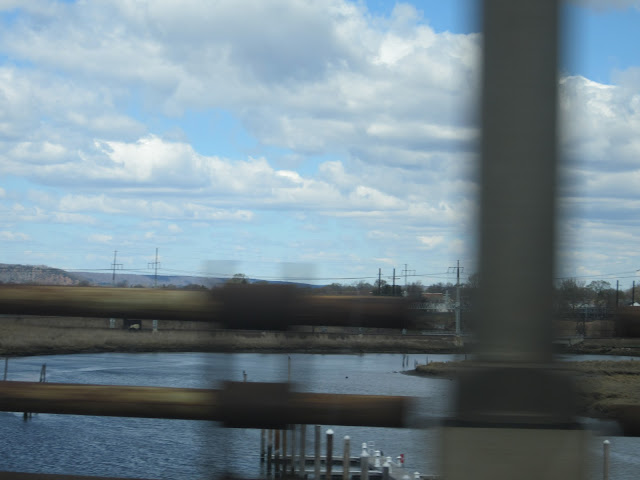In his recent book, The Bonds of Debt, Richard Dienst devotes a couple of paragraphs to Bertolt Brecht`s poem, ``An die Nachgeborenen.`` It is actually Benjamin who Dienst is discussing, and in particular a phrase of Benjamin`s that is often difficult to locate, and may in fact only be represented here in fragments: ``for the sake of the hopeless, we are given hope.`` Dienst describes Benjamin`s awareness of the schizophrenic organization of the Jetztzeit, that ``complex interval between wishful expectation and dread, teaching us to practice different modalities of anticipation and suspension, long patience and outright refusal (166),`` connecting Benjamin`s notes on Brecht`s poem to these ``conflicted moods`` (166, Dienst`s words). Benjamin`s notes read:
[line scratched out:] Example of genuine historical representation: `An die Nachgeborenen.` We claim from those born later not thanks for our victories but rather remembrance for our defeats. [not scratched out:] That is consolation: the only kind that can be given to those who have no more hope for consolation. (Dienst 166)The footnote attributes this passage to Walter Benjamin, Gesammelte Schriften Band I/iii (Frankfurt: Suhrkamp Verlag), p. 1,240), and although it is not the passage that I mention above, the common theme of consolation, from which Dienst distills an idea about remembering defeat, and in fact, establishing continuity on the basis of notions of defeat or failure. These grounds of ``infinite indebtedness,`` which for Dienst also refer to the phenomenological aspects of the given, aspects that qualify it not as inert or fixed, but as fluid, ``to be drawn out in our encounter with it,`` form the basis of the types of political subjectivity that Dienst imagines possible.
Dienst`s point of departure suggests that thinking in dark times has to do with negotiating this point of historical continuity and transition. In the last lines of the poem, Brecht writes,
The lines anticipate the perspective of historical judgment, proposing that the consolation is not only a form of historical forgiveness, but that such a position of spectatorship is central to the formulation of subjects who take up the project that Brecht (or Dienst or Benjamin) describes. Brecht`s seemingly straightforward caveat is also contorted by his effort throughout the poem to articulate the limits of speaking in dark times. And although his poems tend to be organized around the themes of state oppression and class conflict, they articulate less visible arguments about political agency. In actuality, they articulate the struggles of the bourgeois subject, struggles that become presented and seemingly resolved in terms of morality, and predominantly, in terms of complicity. If complicity is the only way that the bourgeois subject experiences political agency, the problem (and its solution) is not that to deal with the problem of debt we must refuse the morality of guilt and personal responsibility that accompanies it, or that, as Nietzsche found, guilt produces bad morality, but that the refusal of guilt as a form of moral or ethical activity or the construction of an alternative (take for example, Timothy Bewes` promotion of ``shame`` in his book, The Event of Postcolonial Shame) is an expression of its very centrality in conceptualizing political agency. Brecht is the great thinker of this bourgeois guilt, the thing that keeps the bourgeoisie from being able to identify as proletarians, and this is also why the problem of morality is one of identification. In other words, the circularity of refusal and recuperation works much like the aesthetic identification that is the object of Brecht`s critique. Projects that articulate the possibility of ``refusing guilt,`` or ``refusing debt,`` are thus not that far from Brecht`s project refusing aesthetic identification, and there can be something to take from his determinations of complicity.Think—When you speak of our weaknesses,
Also of the dark timeThat brought them forth.
picture: Selected Poems by Bertolt Brecht, cover by Roy Kuhlman (Grove Press, 1959).
























